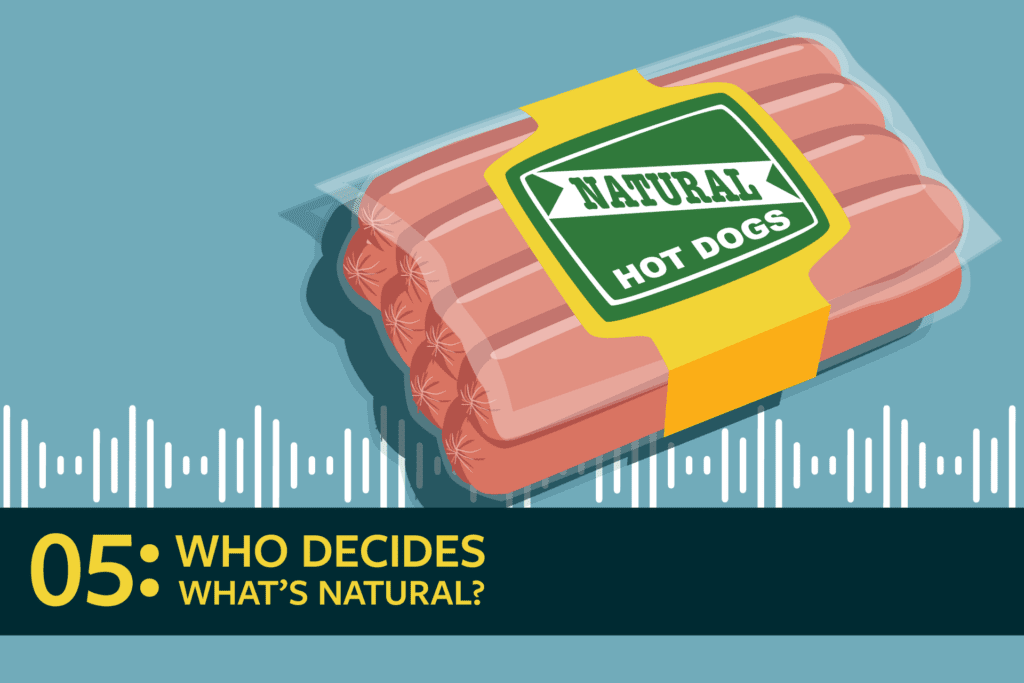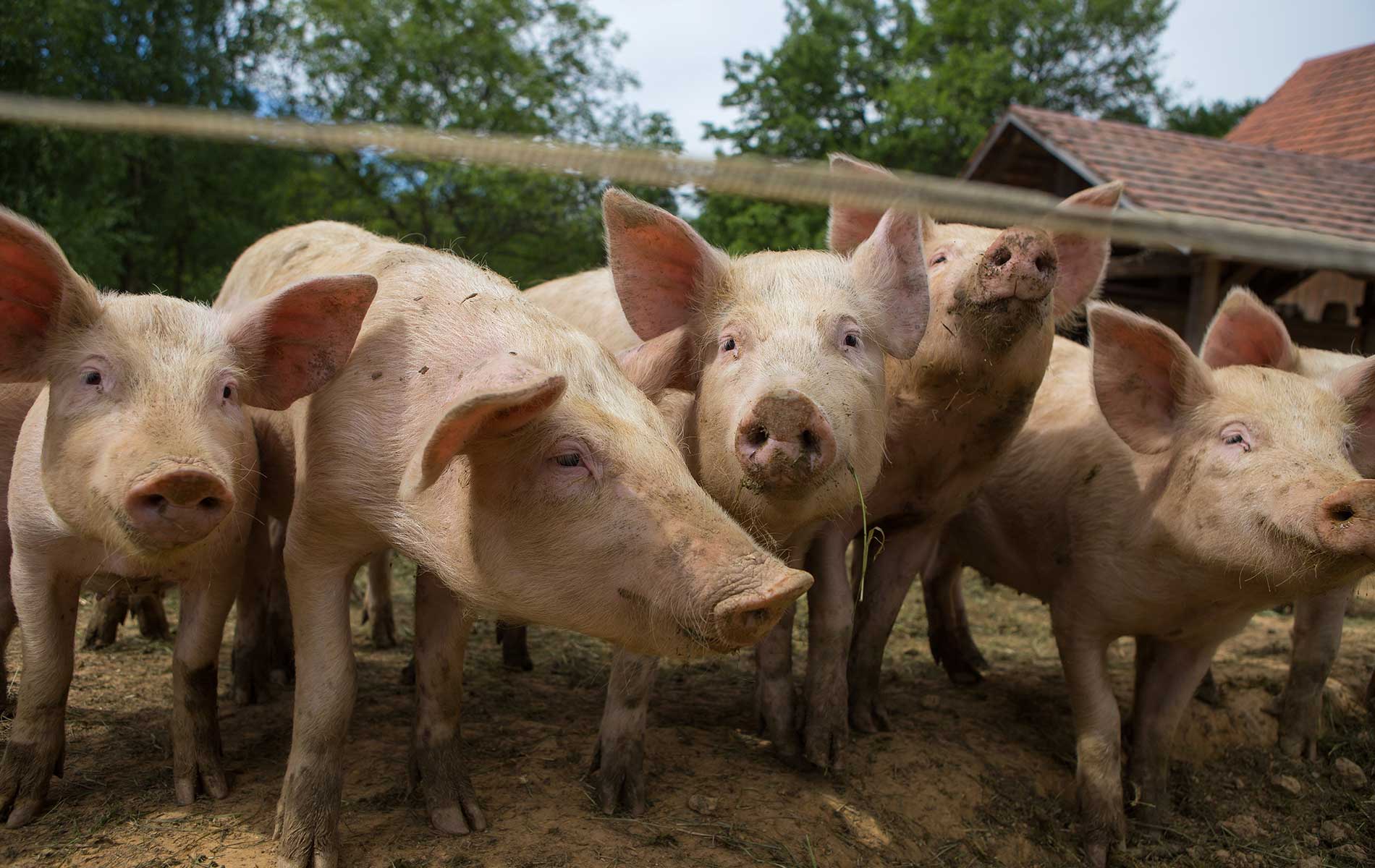How Hormel Exploited Confusion Over the Natural Label
Natural is a confusing term for consumers. As we explored in an episode of our podcast, “What You’re Eating,” most people don’t know what it means or if it’s a regulated term. Is it the same as organic? Does it mean animals were treated well or that food was produced without synthetic chemicals? Food companies take full advantage of that ignorance, using natural as a centerpiece in promotion campaigns that paint a picture of wholesome, simple production that often looks nothing like reality. But a recent settlement against Hormel Foods, a meat processor, marks a successful attempt to fire back against the food industry’s deliberate attempts to mislead the public.
Hormel’s Misleading Advertising
Hormel, the Minnesota-based food manufacturer, is perhaps best known for SPAM, a canned lunch meat that’s about as far from most people’s ideas of natural as you can get. While some of the company’s brands do have products much more in line with that vision, (like Applegate, which does meet standards for animal welfare and environmental stewardship) natural certainly isn’t what many people expect from Hormel itself. So when it launched its Natural Choice brand, the company turned to aggressive marketing to shift that perception.
Ads for Natural Choice products evoked nature, using birds and flowers to paint a picture of a product that was produced in harmony with nature. In one TV spot, a family who was “on an all-natural kick” (as represented by a brimming wildflower garden, green roof and happy goat) discovered Natural Choice products as the way to go natural “without going all-out.” Altogether, the marketing campaign persuaded consumers that going with Natural Choice products was a wise investment in both their health and the environment. And the campaign was successful: by 2015, Natural Choice was one of the company’s fastest-growing brands.
In reality, the animals raised for the Natural Choice meats were no different than those raised for the rest of Hormel’s product lines. This means these animals were raised on factory farms, where antibiotic-heavy diets, growth-promoting drugs like ractopamine and tightly cramped conditions were all commonplace, a far cry from the images evoked in the brand’s advertising. Furthermore, numerous food safety violations in Hormel’s plants — like contamination from fecal matter or disinfectant chemicals — fly in the face of the idea that the products are any safer for consumers than other lunch meats. Arguing that the brand was advertising deceptively, the Animal Legal Defense Fund (ALDF) and Public Justice sued.
Natural: an Exploitable Loophole
So why can Hormel claim its meat products are natural in the first place? Per the USDA, natural is a fairly open definition, “containing no artificial ingredient or added color,” and “only minimally processed in a manner that does not fundamentally alter the product.” And by that standard, Hormel’s Natural Choice products do technically qualify — but as is often the case with natural products, that technicality means very little. Natural products are not permitted to be cured with nitrates, but can be treated with celery powder that does exactly the same thing and leads to the same health problems despite qualifying as “uncured” and natural on a label, for example.
Internal documents from Hormel produced during discovery highlight that the company was both aware of consumer ignorance and eager to exploit it. Documents referred to celery powder and cherry powder as “loopholes” that allow different labeling of natural ham while being functionally the same as other kinds of hams.
Beyond exploiting technical loopholes in the natural label, Hormel also knowingly took advantage of consumer misconceptions about what natural means and used that to craft misleading advertising. As Public Justice and the ALDF laid out in their case, Hormel knew from consumer research that most consumers have a much broader idea of what natural guarantees than it really does, with a majority thinking it is a guarantee that animals were raised humanely or without preventive antibiotic use. Many also confuse it with USDA Organic, which actually comes with stringent production standards.
But this didn’t stop Hormel from evoking those connections in their advertising. In fact, media guides produced by the company show strategies for dodging questions about what natural means, with instructions to sidestep questions about preservatives and mislead the public about the company’s animal welfare practices.
“What’s great about these documents is that they show how deliberate the exploitation of the confusion is,” said Leah M. Nicholls, an attorney who worked on the case for Public Justice. Considering that whistleblowers and activists are often branded as conspiratorial by the food industry and its PR machine, seeing those strategies laid out so explicitly is an important reminder: food companies aren’t innocent actors making occasional mistakes, they’re powerful organizations with the legal resources to find and exploit loopholes, many of which they helped create through their own lobbying efforts. Ambiguity around terms like natural is not an accident, it’s a convenient and exploitable way for marketers to sell products. And as Nicholls points out, Hormel is not the only company abusing that strategy.
Given the abundance of evidence against them, Hormel ultimately decided to settle the case. By agreeing to include clarifying language about what natural actually means on the Natural Choice website and to include that language in any future advertisements for the brand, Hormel shouldn’t be able to use such deliberately deceptive strategies to advertise their products going forward, though it may take a while to change brand image that they’ve already built up with consumers. It’s an important victory against such a high-profile food company, but with so many other companies employing the same advertising strategies, the settlement is only the beginning of what’s needed to meaningfully alter the landscape around abuse of the natural label. Regulatory shifts, like Public Justice and the ALDF’s petition to remove the celery powder loophole, are also necessary for getting rid of ultimately meaningless marketing terms like natural.
The Fight for Greater Transparency
Public Justice was successful in getting Hormel to change its advertising, but it wasn’t the only victory scored in the case. The lawyers were also successful in getting most of the evidence in the case declassified, with many of the documents available on the Public Justice website. This is unusual, given that most companies designate their materials as confidential when they submit them for discovery, meaning that they won’t be available to the public regardless of outcome. In Hormel’s case, nearly all of the documents were initially marked as confidential.
But as Nicholls, who specializes in transparency in her other work with Public Justice, explains, “one thing that’s really important to us as an organization, not just with regard to our animal ag cases, is ensuring that as many documents are public as possible.” Not only do the revealed documents show how deliberately Hormel misled customers, they also help other advocates trying to expose the widespread abuses of the factory farm system. “Even if you don’t win your case, there’s a lot of good information out there that advocates can use, so transparency in litigation can move things forward regardless of the outcome.”
Declassifying the documents was a rare win for advocates, given that food companies have come to expect getting their way when it comes to transparency. Food companies have always relied on obscuring information to exploit workers, farmers and consumers, so pushes towards greater transparency are important for holding companies accountable. For their part, food and agriculture companies have been quite successful at protecting their activities from view. Animal rights activists are often prevented from releasing footage of abuse on factory farms by “ag gag” laws that make this kind of activity illegal, for example.
This deference towards food companies also extends to federal regulators like the FDA, where confidentiality practices that heavily favor food companies dampen the agency’s ability to effectively communicate about foodborne illness and other risks to the public. When paired with chronic understaffing and low resources, the company-protecting bureaucracy that’s so embedded at the agency means that enormous food safety outbreaks — like 2022’s infant formula crisis — are often revealed by whistleblowers long before corrective action can occur.
Ironically, many food companies list transparency as one of their core values that allows them to guarantee safe and healthy products. As the facts in cases like Hormel’s demonstrate, however, they’re both willing to mislead consumers about the true nature of their supply chains and eager to try and cover their tracks. But as demands for honesty and transparency become more common, companies are having a harder time using terms like natural to obscure their activities. As grocery expert Errol Schweizer pointed out on our podcast, suing companies over misleading advertising has “ become its own little cottage industry,” with natural becoming “a total hot potato” for companies like Hormel, ultimately pointing to a future where exploiting misleading terms might become too much of a liability to be worthwhile.
Get the latest food news, from FoodPrint.
By subscribing to communications from FoodPrint, you are agreeing to receive emails from us. We promise not to email you too often or sell your information.
Top photo by dusanpetkovic1/ Adobe Stock
More Reading
What to do when your favorite "better" brand gets called out online
February 25, 2026
300 million male chicks are killed every year. Can in-ovo sexing change that?
September 30, 2025
What do faster line speeds in slaughterhouses mean for animals, workers and food safety?
May 8, 2025
When "Made in America" isn't really: Country-of-origin labeling for beef
May 8, 2025
This vegan tiramisu will bring you joy
March 11, 2025
Finding a pet food that aligns with your values
February 11, 2025
The environmental benefits — and limitations — of hunting as a food source
January 6, 2025
The USDA updated label guidelines to increase transparency — is it enough?
September 12, 2024
How can ecofeminism help us envision the future of food?
July 18, 2024
Switching from beef to chicken isn't the sustainability flex you think it is
June 12, 2024


